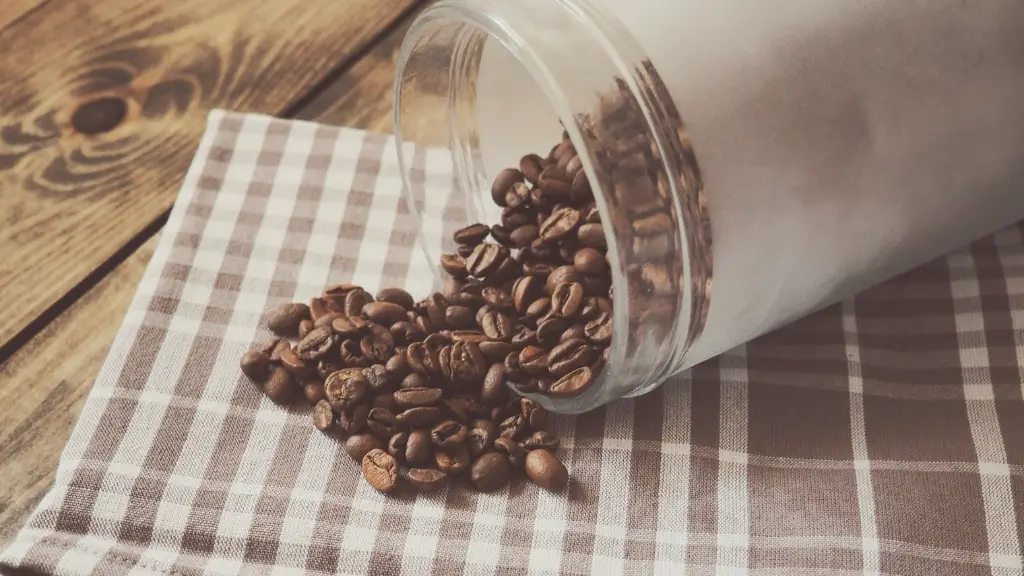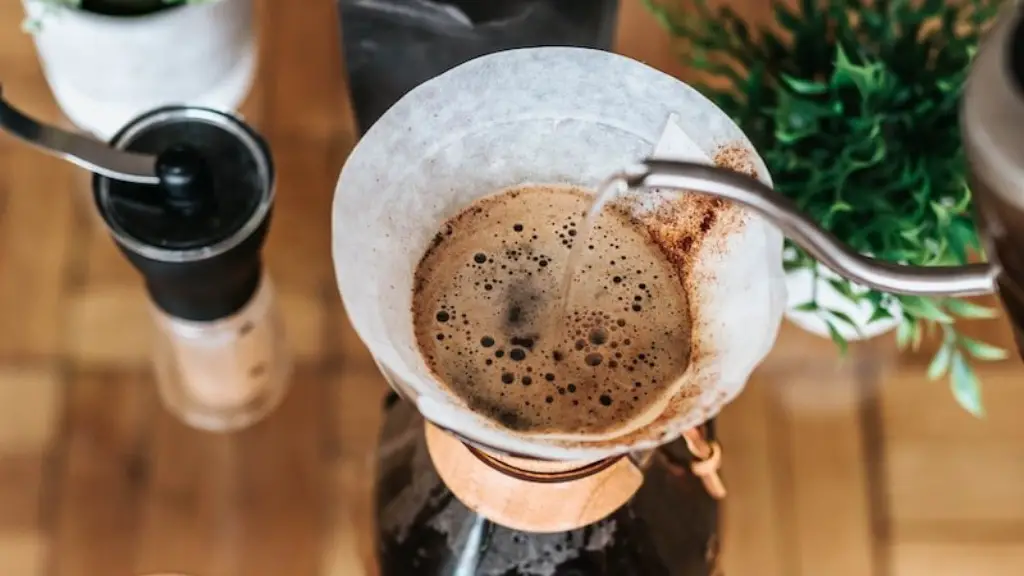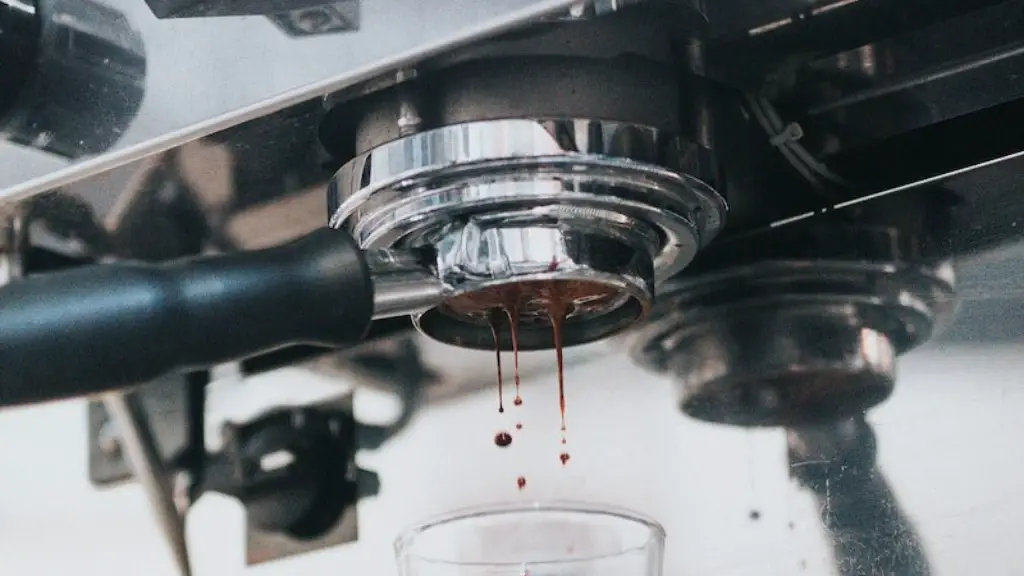Nutritional Value
Coffee grounds contain a number of beneficial dietary components. Approximately 20% of the grounds’ weight comes from carbohydrates – mostly simple carbohydrates like glucose, cellulose, and galactose – while 5-6% consists of essential fatty acids and essential amino acids. Coffee grounds also contain trace amounts of vitamins and minerals, primarily magnesium, phosphorus, potassium, and B-vitamins. Consuming coffee grounds can provide a dose of these nutrients, although it isn’t the most efficient source.
Caffeine Content
Coffee grounds contain significant amounts of caffeine, which may provide a pick-me-up to some people. On average, an 8oz cup of brewed coffee contains 95mg of caffeine, and an 8oz cup of espresso contains 63mg of caffeine. Polyphenols, which are thought to play a role in reducing the risk of some diseases, are also found in coffee grounds. These compounds may help to reduce inflammation and improve cardiovascular health.
Antioxidant Content
The coffee grounds also contain antioxidants that help to reduce the risk of disease and slow down the aging process. Studies show that coffee contains higher levels of antioxidants than black tea, green tea and cocoa. This is due to their high levels of chlorogenic acid (CGA), which is a natural antioxidant. Studies have found that coffee grounds contain 5-34mg of CGA/gram of coffee.
Can You Drink Coffee Grounds?
So, can you drink coffee grounds? The answer is yes, coffee grounds can be consumed in moderation. They may provide an extra jolt of caffeine and some additional nutritional benefits, but care should be taken not to overdo it. Consuming too much coffee grounds could lead to adverse side effects like restlessness, headaches, irritability, dizziness and nausea.
Reuse Coffee Grounds
There are other ways to reuse coffee grounds beyond just drinking them. Use them as compost to enrich your garden soil, as a natural scrub for exfoliating your skin, or as a source of caffeine for projects. You can also use water-soaked coffee grounds to make a natural dye for various craft projects. If you want to keep your grounds around longer than a day or two, you can store them in the fridge or freezer.
Coffee Benefits
There are numerous benefits to drinking coffee, especially when consumed in moderation. Coffee can provide a natural boost of energy, improve focus and alertness, and boost your metabolism. Drinking coffee can also reduce the risk of some chronic diseases, including heart disease and type 2 diabetes. While these potential benefits may be motivating factors for some, it’s important to remember that coffee can also pose significant health risks if consumed in excess.
Risks of Coffee Drinking
The risks of coffee drinking include headaches, insomnia, restlessness and dehydration. Caffeine can increase the body’s production of adrenaline, which can quickly lead to increased heart rate. Consuming too much caffeine may also result in increased levels of stress, potentially leading to a greater risk of developing anxiety and depression. Of course, the risks associated with drinking too much coffee are even more pronounced when consuming coffee grounds.
Coffee Alternatives
If you’re looking for a way to cut back on your coffee consumption, there are a number of alternatives. Decaffeinated coffee is an option, although some debate exists surrounding the safety and effectiveness of decaffeination processes. Herbal teas and speciality coffees are also an option, as many companies produce beverages with no caffeine. Finally, natural non-caffeine drinks such as juice, milk and water are helpful for boosting energy without the risk of side-effects.
Making Coffee Grounds
If you decide to go ahead and make your own coffee grounds rather than purchasing them pre-ground, there are a few things you should keep in mind. First and foremost, coffee beans should be freshly roasted for optimal flavor. Additionally, the method of grinding can have an impact on the flavor. Coffee grounds should be ground just before use, so that the flavor and aroma remain intact. Additionally, if you use a burr grinder, you should use a medium or fine grind, as coarse grounds will get stuck in the burr grinder and produce an inconsistent grind.
Brewing Coffee Grounds
When brewing coffee grounds, it’s important to use the right brewing method and amount of coffee grounds. French presses, pour overs, and moka pots all work well with coffee grounds. For optimal flavor, try to use a 1:15 coffee-to-water ratio. Additionally, try to avoid boiling the water when brewing, as it can burn the coffee and create a bitter flavor.
Storage of Coffee Grounds
If you’re not using your coffee grounds immediately, you’ll need to store them properly to ensure the maximum aroma and flavor are retained. Coffee grounds should be stored in an airtight container in a cool and dry place. If you’ve made a large batch at once, it’s best to divide the batch up and store it in multiple containers. Additionally, if you’re not using the grounds for a few days, it’s best to store them in the refrigerator or freezer.
Brewing with Reused Coffee Grounds
Reused coffee grounds can be an economical way to make coffee, although the flavor quality will likely be poorer due to the grounds being “used”. When brewing with reused coffee grounds to save money, try to adjust the brewing method and amount of coffee used to offset the diminished flavor. Additionally, try to brew the same grounds within 24 hours of initial use, as the previously extracted flavors will start to degrade after that point.



